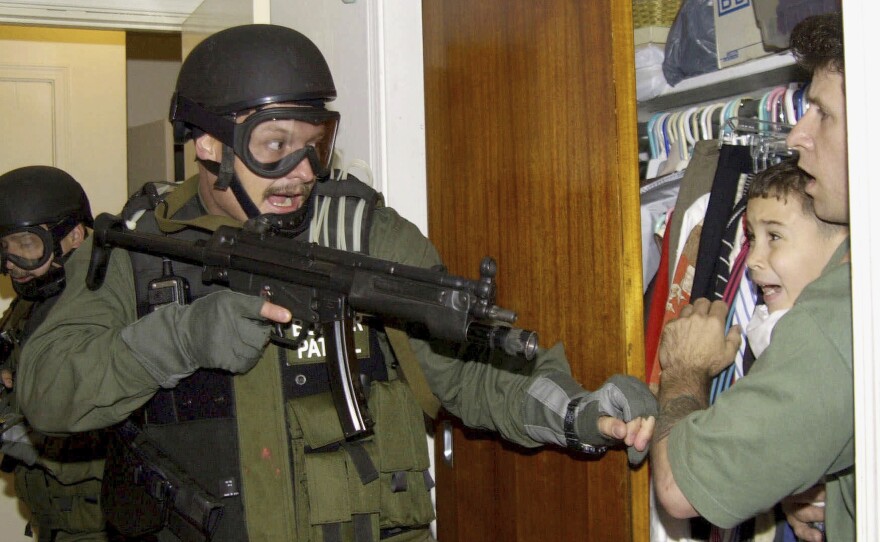Elián González, the Cuban national who set off an international custody battle as a child when he was found floating alone in the Florida straits in 1999, is about to become a member of the communist country's parliament.
González, who is now 29 and an industrial engineer, is one of 470 municipal leaders who have been nominated to serve in the country's National Assembly. While elections have yet to take place – they're planned for March 26 – his nomination is expected to go through.
News about the political post was first reported by Granma, the Communist Party-run newspaper in Cuba.
As a 5-year-old, González was rescued off the coast of Florida on Thanksgiving by fisherman who found him clutching onto an inner tube. He'd been adrift for two days – the sole survivor of an attempted escape from Cuba by his mother and nine others, who all died when their boat capsized and sank.
González was brought to U.S. shores and sent to live with relatives in Miami. But back home, his father, Juan Miguel, and the father of Cuba's communist revolution, Fidel Castro, wanted him back. Together they waged a campaign demanding González's return.
A legal battle dragged on for several months, stoking Cold War-era hostilities between the two nations. Still, the boy's family in Miami refused to give him up.
Ultimately, the U.S. Supreme Court rejected an appeal that would keep him in the country. Then on April 22, 2000, armed federal agents launched "Operation Reunion," storming González's relatives' home. The controversial raid was televised, sending images of the terrified child into homes across the globe. It sparked protests and counter-demonstrations.

In the end, González and his father were reunited. Both returned to Cuba in June 2000.
Once home, González's father said the boy would lead a quiet life, but celebrity has followed him over the decades. Castro welcomed the boy home with a massive demonstration, and was the guest of honor at the child's 7th birthday. The two remained close for the remainder of Castro's life.
In 2008, González again made headlines after joining Cuban Young Communist League at the age of 14. In 2015, on the 15th anniversary of his return to the island, Granma called him "an essential part of the warm-hearted Cuban homeland."
That same year, González told ABC News that though he disagreed with his mother's attempt to flee to the U.S., he is grateful for her efforts to keep him afloat even as she drowned.
"I believe that if today she is not here with me it is because she fought until the very last minute for me to survive," he told ABC. "After giving life to me, I believe she was the one who saved me. She was the one who gave life back to me at a time of danger."
When asked by the Cuban newspaper about the future of his nation, he said, "Sometimes we young people think that if we stop being a socialist country, and give way to capitalism, we will become a developed country like the United States, France, Italy..."
"But," he added, " it must be understood that if Cuba stops being socialist, it won't be like the U.S., it would be a colony, it would be Haiti, a poor country, a lot poorer than it is now, and everything that has been achieved would be lost. It is true that we could have accomplished more, but we can never forget the most important historic [fact]: we have been a country besieged by a blockade."
Copyright 2023 NPR. To see more, visit https://www.npr.org. 9(MDAzMjM2NDYzMDEyMzc1Njk5NjAxNzY3OQ001))







